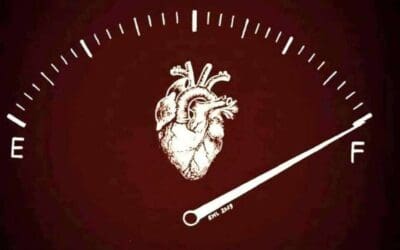We often hear the term self-love. But what actually is self-love? And why is it important? As a practicing Cardiologist and Holistic Heart Doctor, matters of the heart are crucial to me. And self-love is ever so essential to our hearts and overall health—physically, emotionally, and spiritually.
Simply put, self-love is treating oneself with kindness, respect, and compassion. It involves accepting oneself as one is, flaws and all, and committing to the time and effort of caring for one’s physical, emotional, and mental well-being. In a world where there is often so much emphasis on pleasing others and conforming to societal norms, self-love is a powerful tool for cultivating happiness and living a fulfilling life. And who doesn’t want or deserve a happy life?
At its core, self-love is about accepting oneself unconditionally. So, how do we do this? First, it means recognizing that we all have weaknesses and areas where we can improve but choosing to love ourselves anyway. It’s not always easy, but paramount to a healthy life. It’s about acknowledging our worth and valuing ourselves, regardless of external circumstances or what others think of us. When we practice self-love, we develop a sense of self-respect that enables us to make choices that align with our needs and desires.
One important aspect of self-love is taking care of our physical health. This includes getting enough rest, eating well, and exercising regularly. When we treat our bodies respectfully, we can better function at our best and feel good about ourselves. Self-love also involves taking care of our emotional and mental well-being. This might mean setting boundaries with toxic people, practicing mindfulness, or seeking therapy when we need help working through difficult emotions.
Another essential aspect of self-love is embracing our own unique qualities and interests. So often, we may feel pressure to fit into a specific mold or conform to societal expectations. But when we allow ourselves to explore our passions and pursue what makes us happy, we can live more authentic and fulfilling lives. It’s important to remember that what brings one person joy may not bring joy to another, and that’s perfectly okay. Embracing our individuality is a powerful act of self-love.
Self-love is also vital for healing from emotional and psychological wounds. When we have experienced trauma, abuse, or neglect, it can be challenging to love and accept ourselves fully. However, practicing self-love can be a powerful tool for healing and moving forward. It involves acknowledging our pain and suffering while recognizing our inherent worth and value as human beings. We all have value and deserve love. And it starts with loving ourselves. Self-love can help us to forgive ourselves for past mistakes, let go of shame and guilt, and embrace a new sense of self-compassion and self-respect.
Let me be clear, self-love is not always easy. It can be challenging to let go of negative self-talk and old habits that don’t serve us. But with practice, developing a more profound sense of self-love and acceptance is possible.
In conclusion, there are many ways to practice self-love, including affirmations, journaling, therapy, and meditation. Some other ways to cultivate self-love include daily affirmations, setting boundaries, practicing self-care, and surrounding ourselves with positive people who support us. It is essential to find what works for you and to make self-love a regular part of your daily routine. By prioritizing self-love, you can transform your life, heal from past wounds, and embrace a more joyful, fulfilled, and authentic version of yourself. Remember, self-love is not a luxury but necessary for a happy and healthy life.




